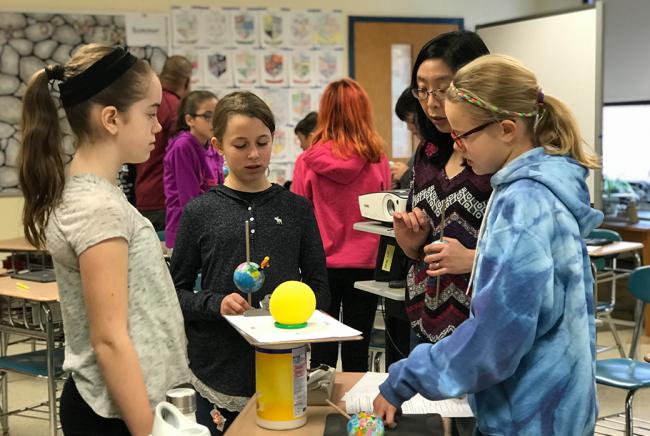Misconception-Oriented Standards-based Assessment Resources for Teachers (MOSART)
Understanding basic scientific concepts is essential for an informed public in a democratic society, but many scientific misconceptions are common. To complicate matters, it’s often difficult for educators to assess conceptual understanding among their students. For that reason, science education researchers at the Center for Astrophysics | Harvard & Smithsonian have developed Misconception-Oriented Standards-based Assessment Resources for Teachers (MOSART), a suite of assessment instruments for use in the classroom.

Students using physical models to challenge their misconceptions about seasons.
Understanding Not Just Facts
Science is much greater than a set of facts that can be memorized. The concepts linking those facts together are far more important, but concepts are also more difficult to teach and for learners to retain. Science, technology, engineering, and mathematics (STEM) education research devotes a great deal of effort to improving that situation, as well as assessing how concepts are formed and retained in students’ minds.
MOSART is one such project. Based on STEM education research and extensively field tested in classrooms, these multiple-choice tests are designed to gauge how well students understand various concepts in science, as opposed to memorizing facts. These tests, which cover all science subject areas (physical science, earth and space sciences, and life sciences) across three grade bands (K-4, 5-8, and 9-12), are aligned with the National Research Council’s National Science Education Standards and the Next Generation Science Standards. The assessment instruments are freely available for classroom teachers and education researchers, along with tutorial materials to teach educators how to best utilize the items and how to interpret the results. Offering MOSART assessments at the beginning and end of the year allows educators to check their students’ improvement over the entire course.